|
Left: Protest against Canadian interference in Haiti in 2004 after coup against popular Haitian leader Jean-Bertrand Aristide. [Source: globalresearch.ca]. Right: Haiti’s new Prime Minister below flags of countries that selected him. [Source: haitilibre.com] It is déjà vu all over again. On July 17th, the Core Group (U.S., Canada, France, Spain, Germany, Brazil, UN and OAS) published a note saying Ariel Henry was the prime minister of Haiti. Within 48 hours the other individual claiming the position fell into line behind Henry, who was a member of the U.S./France/Canada created “Council of the Wise” that appointed the prime minister after President Jean-Bertrand Aristide was ousted in 2004.
As a result, many Haitian civil society and political actors have criticized the Core Group’s “selection of Haiti’s leader by statement.” To understand their concerns, imagine the Jamaican, Congolese, Guatemalan and Filipino ambassadors releasing a collective statement on who should be prime minister of Canada. The assassination of President Jovenel Moïse reflects the disintegration of Haitian politics after a decade of foreign intervention that empowered the neo-Duvalierist PHTK since an earthquake devastated Port-au-Prince and surrounding regions in January 2010. Jovenel Moïse, with first lady Martine and Prime Minister Claude Joseph at ceremony commemorating creation of Haitian flag, weeks before his assassination. [Source: apnews.com] Instead of dispatching Heavy Urban Search and Rescue Teams to help with relief and medical support after the quake, Ottawa sent 2,000 troops to join more than 10,000 U.S. troops deployed to Haiti. As internal Canadian government documents show, they were deployed out of concern over a “popular uprising” amidst the political vacuum and the return of Haiti’s most popular politician, Aristide, from forced exile. Canadian troops in Haiti. [Source: Canada.ca] While their massive capacities offered certain logistical benefits, the foreign troops trampled on Haitian sovereignty by seizing control of the airport and port. Simultaneously, the government was sidelined from international reconstruction. In the months after the quake the U.S. and Canada demanded the Haitian parliament pass an 18-month state of emergency law that effectively gave up government control over the reconstruction. U.S. soldiers patrol Haiti’s capital Port-Au-Prince after the devastating 2010 earthquake. [Source: chinadaily.com] Not viewing then-President Renée Préval as sufficiently compliant, the U.S. and Canada pushed for elections to take place only months after the horrific earthquake. With rubble throughout Port-au-Prince and hundreds of thousands living in camps, Canada’s then-Foreign Affairs Minister Lawrence Cannon demanded Préval hold elections by the end of the year. In May 2010 Cannon said, “the international community wants to see a commitment, a solid, serious commitment to have an election by the end of this year.” (With far fewer logistical hurdles, it took two years to hold elections after the 2004 U.S./France/Canada coup.). As a result of various obstacles tied to the earthquake and a devastating cholera outbreak introduced to the country by negligent UN troops in October 2010, hundreds of thousands were unable to vote during the first round of the November 28, 2010, election. Another factor dampening turnout was the exclusion of Aristide’s Fanmi Lavalas from participating.
Michel Martelly [Source: miami.cbslocal.com] Nevertheless, Ottawa and Washington pushed the Haitian government to accept the OAS’s recommendations. Cannon said he “strongly urges the Provisional Electoral Council to accept and implement the [OAS] report’s recommendations and to proceed with the next steps of the electoral process accordingly.” In an interview Canada’s foreign minister warned that “time is running out,” adding that “our ambassador has raised this with the president [Préval] himself.” As part of their full-court press, Haitian officials had their U.S. visas revoked, Secretary of State Hillary Clinton traveled to Port-au-Prince and there were threats that aid would be cut off if Martelly’s vote total was not increased as per the OAS recommendation. Michel Martelly and Hillary Clinton [Source: haitilibre.com] The pressure worked. But only about 20% of potential voters participated in the second round of elections, which Martelly “won.” Washington and Ottawa backed Martelly as he failed to hold constitutionally mandated elections and became ever more violent. As president, Martelly surrounded himself with former Duvalierists and death-squad leaders who’d been arrested for rape, murder, kidnapping and drug trafficking. When brutal dictator Jean-Claude (“Baby Doc”) Duvalier returned to Haiti after 25 years, Martelly told The New York Times no one wanted him prosecuted except for “certain institutions and governments” abroad. Michel Martelly and “Baby Doc.” [Source: haitilibre.com] During repeated visits Canadian Foreign Minister John Baird praised Martelly for “going in the right direction” and operating “a really functioning government.” John Baird and Michel Martelly. [Source: haitilibre.com] In 2013 Baird and Minister for the Americas Diane Ablonczy met Martelly and Prime Minister Laurent Lamothe in Port-au-Prince saying, “we share with Haitian leaders the goal of seeing a self-sustaining economy with opportunity for all Haitians and a greater role for private-sector actors, including Canadian companies.” Ottawa backed Martelly until protests forced him to leave office at the end of his five-year mandate. They also helped Martelly make the little-known Jovenel Moïse his successor. The U.S. and Canada pushed to move forward with the second round of voting after mass protests broke out over election irregularities. When the second round was finally canceled Global Affairs Canada put out a statement headlined “Ministers Dion and Bibeau concerned by postponement of Haiti’s presidential elections.” A subsequent audit of the election results found that 92% of polling place tally sheets had significant irregularities and a stunning 900,000 of the 1.5 million votes cast were from ‘accredited poll observers’ who could vote at any voting station. In a new election a year later barely one in five eligible voters participated. According to official figures, Moïse received fewer than 600,000 votes — just 9.6% of registered voters. Voter suppression was widespread.
Knowing they had no chance of gaining power via the ballot box in the foreseeable future, the foreign-backed opposition parties cried foul. After initially describing the elections as “a great success for the Haitian population,” the OAS subsequently criticized the counting method in a handful of Senate seats (as had been done in previous elections, the electoral council determined the 50 percent plus one vote required for a first-round victory by calculating the percentages of the top four candidates). The opposition boycotted the subsequent presidential election, which they had no chance of winning. A USAID poll of 1,002 Haitians conducted on the eve of the November 2000 presidential election showed that Aristide was far and away the most popular politician and Fanmi Lavalas was the preferred party by an incredible 13 to one. In one of the most impressive feats of 21st-century imperial propaganda, supposed “irregularities” in the May legislative and municipal election became the justification for destabilizing and ultimately overthrowing Aristide. In other words, the 2004 coup against President Aristide began with an effort to discredit elections he neither participated in nor oversaw. Aristide supporter with Aristide’s portrait. [Source: repeatingislands.com] The U.S.- and Canada-sponsored destabilization campaign included an aid embargo, funding for opposition groups, diplomatic isolation and paramilitary attacks. It culminated with U.S., French and Canadian troops invading the country to physically remove the president. Incredibly this was all planned, in broad outline, in advance in Canada. In 2003 Jean Chrétien’s Liberal government organized the “Ottawa Initiative on Haiti” where high-level U.S., French and OAS officials discussed ousting Haiti’s elected president, re-creating the dreaded army and putting the country under UN trusteeship. Thirteen months after the meeting Aristide was forced out and Haiti was under UN occupation. The military was subsequently re-created. An RCMP officer trains members of the Haitian National Police in 2004. [Source: breachmedia.ca] The current Core Group traces its roots to the 2003 Ottawa Initiative on Haiti meeting. Some have labeled it a “fourth branch” of the Haitian government. But the Core Group’s success at rallying the PHTK behind Ariel Henry demonstrates its influence may be greater than that. The vast majority of Haitians are right to be angry at foreign interference in their country. Look at where it has led. AuthorYves Engler is a Montreal-based writer whose 2009 book, The Black Book of Canadian Foreign Policy, was short-listed for the Quebec Writers’ Federation Mavis Gallant Prize for Nonfiction. Yves can be reached at: [email protected]. This article was produced by CovertAction Magazine. Archives August 2021
0 Comments
Leave a Reply. |
Details
Archives
July 2024
Categories
All
|
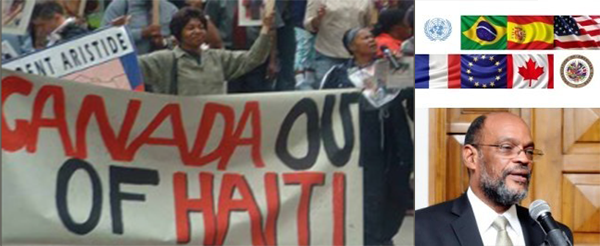
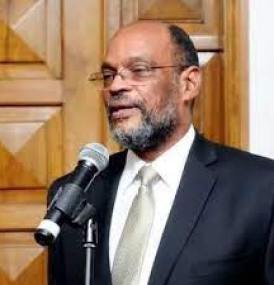
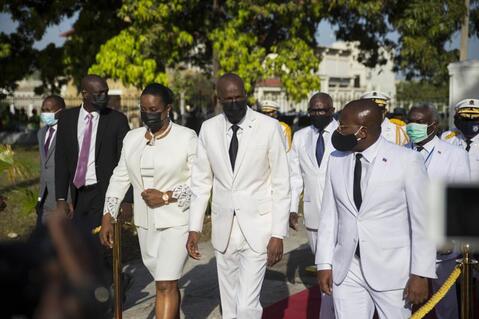
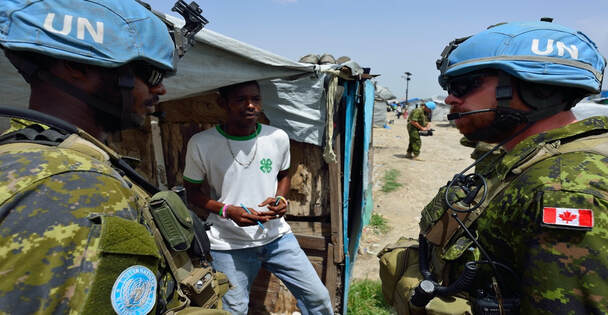
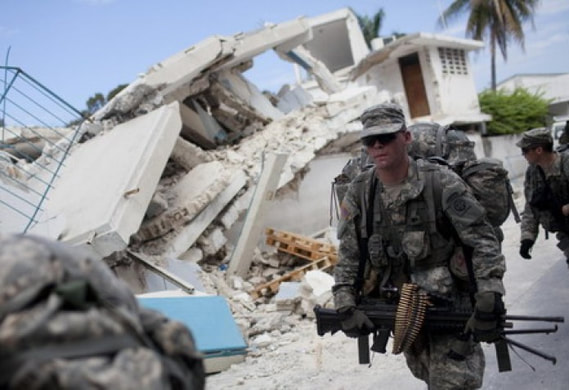
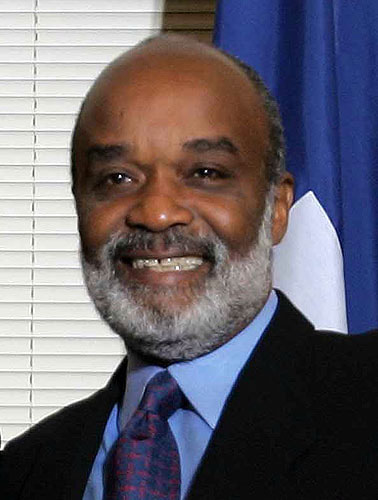

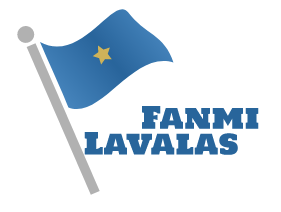
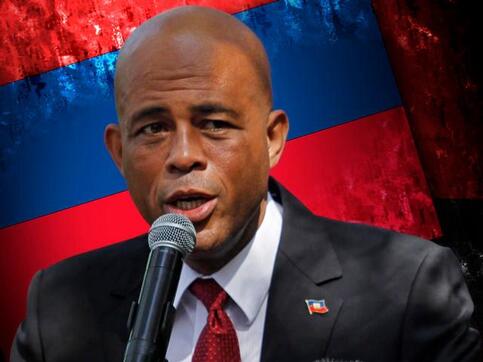
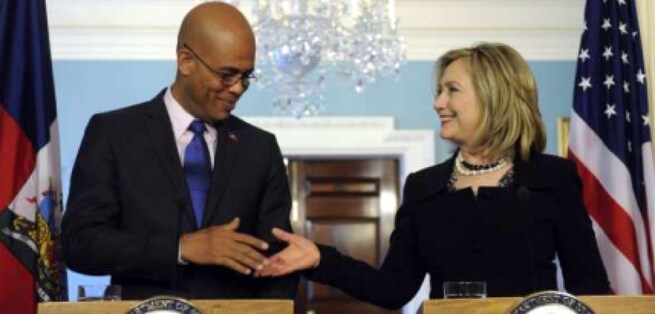
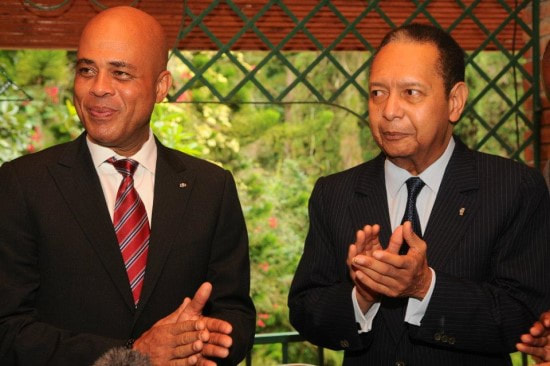
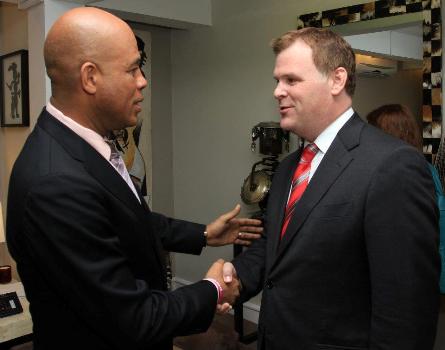
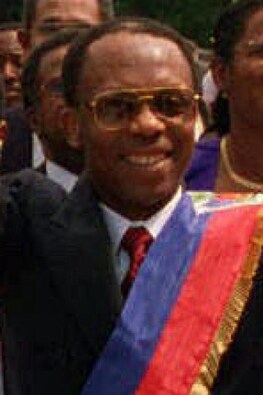
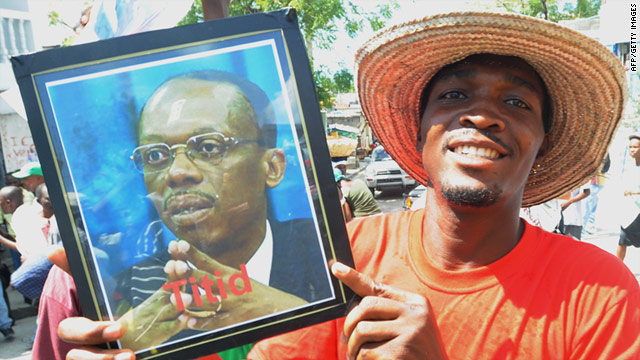
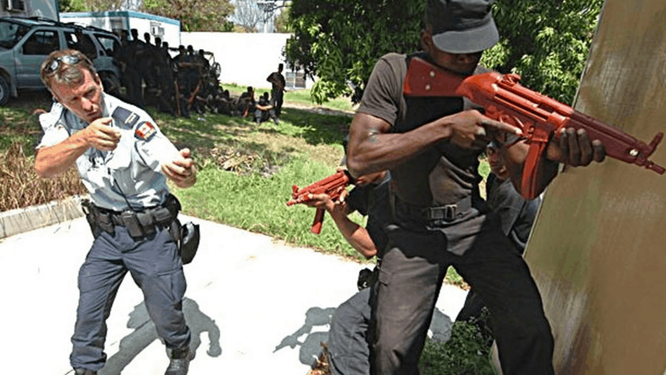
 RSS Feed
RSS Feed